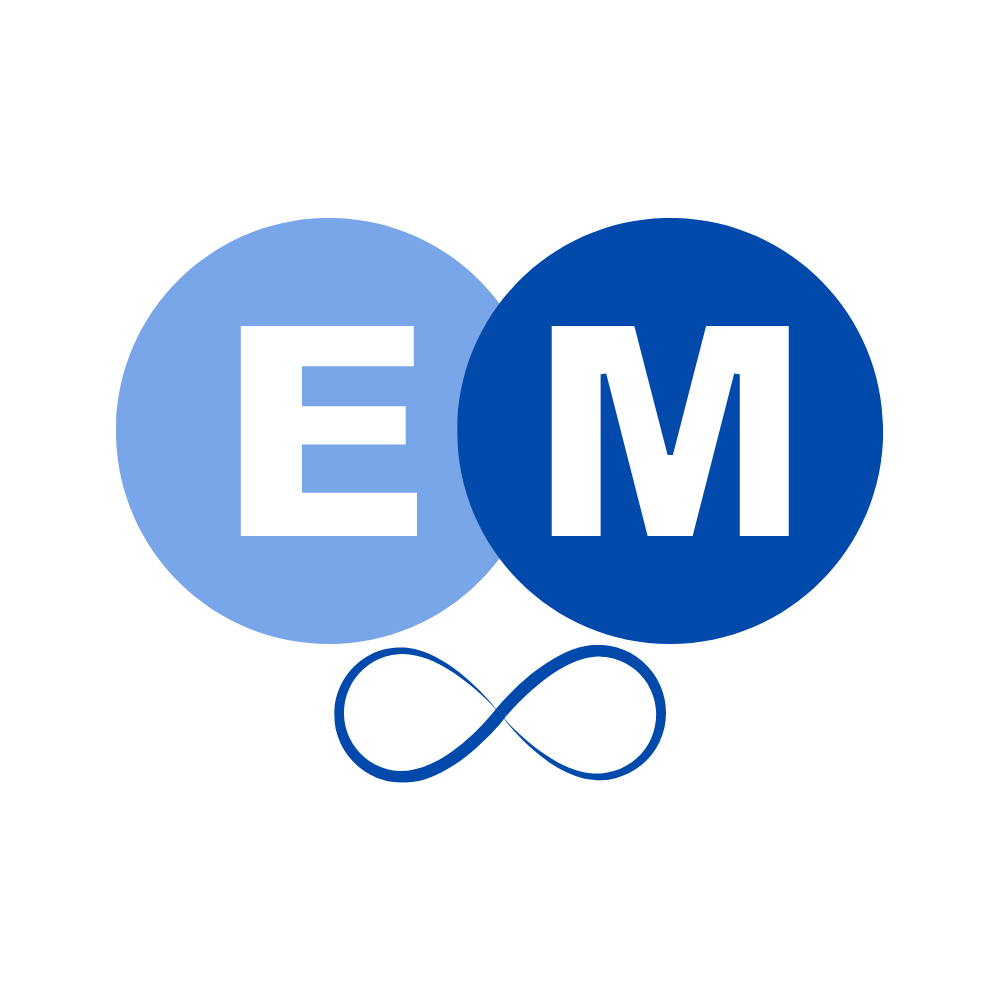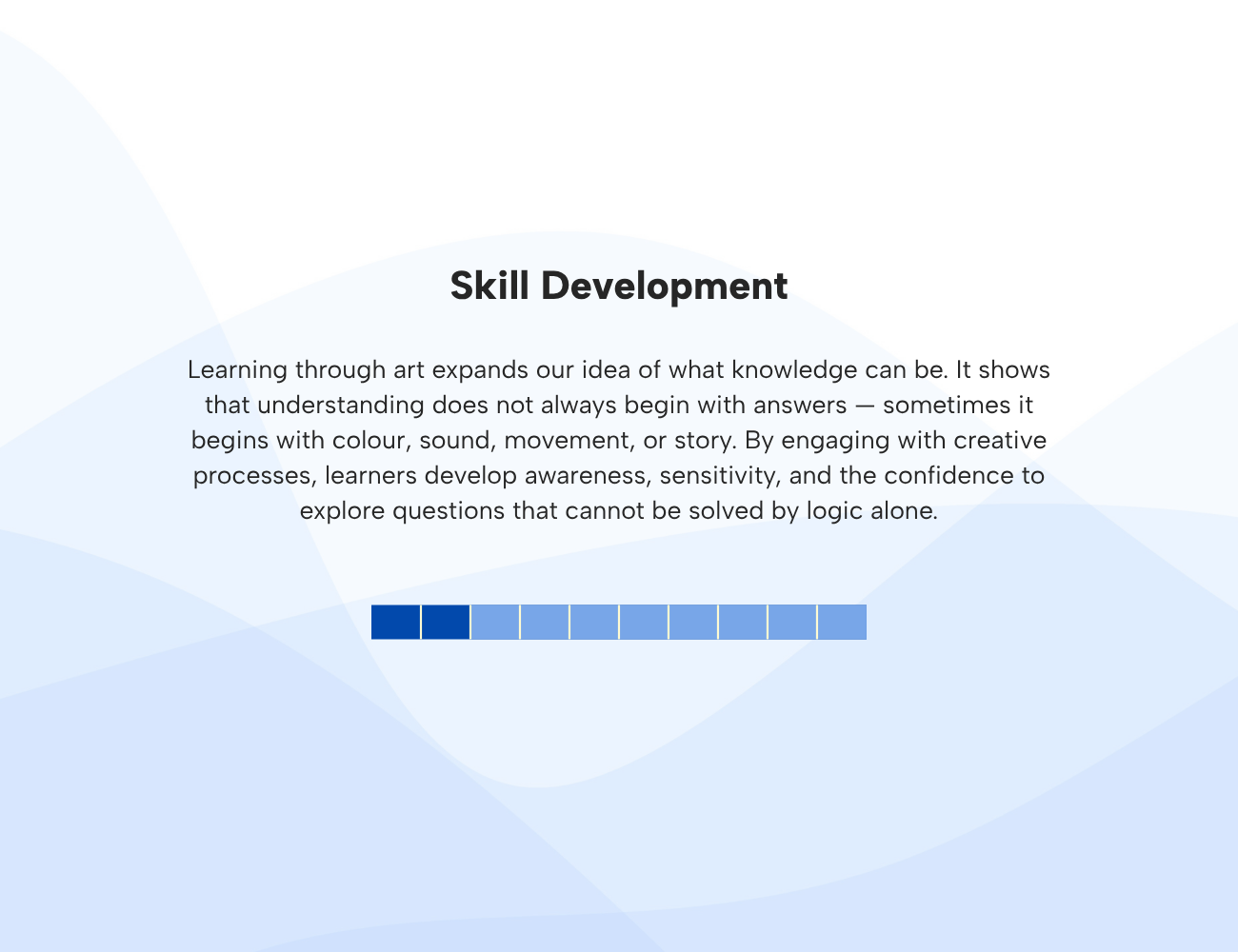Role of Skill Development in Education
Skill development represents the shift from learning about something to learning how to do it. Within education, it acts as a bridge between theory and practice, helping learners translate knowledge into ability and confidence.
In a world that values adaptability and innovation, education must prepare individuals not only to pass examinations but also to think critically, communicate effectively, and apply what they learn in real contexts. Skill development creates this balance by encouraging students to engage actively with what they study and to view learning as a lifelong process.
Through academic, technical, and vocational pathways, the focus on skills ensures that education remains relevant, purposeful, and future-focused. It nurtures not just employability but also independence and creativity, qualities that shape capable and thoughtful citizens.
Click here for – Future Skills India Needs by 2030
Why Skill Development Matters
Skill development is central to the idea of learning that prepares individuals for both work and life. It brings focus to the abilities that help students respond to change, think independently, and collaborate with others.
In modern education, this approach shifts attention from rote learning to applied understanding. When learners gain practical and transferable skills, they not only perform better academically but also become more confident and resourceful. These qualities are essential in a world where success depends less on memorised facts and more on adaptability, problem-solving, and communication.
For educators and institutions, skill development ensures that learning outcomes are relevant to contemporary needs. It strengthens the connection between education and employability while also nurturing a sense of purpose, creativity, and lifelong curiosity.
Types of Skills Covered
Skill development extends across many dimensions of learning. Each skill type contributes to a learner’s overall growth, shaping not just what they know, but how they think, create, and interact with the world. These categories often overlap, reflecting the interconnected nature of real-life learning.
Foundational Skills
These include literacy, numeracy, communication, and critical thinking. They form the base of all further learning and help students make sense of new ideas. A learner who can analyse information, express thoughts clearly, and reason logically is equipped to approach any field with confidence.
Technical and Digital Skills
In today’s world, every learner benefits from understanding technology. From basic computer use to coding, design, and data handling, technical skills open pathways to innovation and professional readiness. They also strengthen problem-solving abilities and analytical thinking.
Creative and Cultural Skills
Creativity nurtures expression and imagination. Whether through art, music, writing, or design, creative skills help learners connect ideas in new ways and bring originality to their work. Cultural awareness and appreciation further expand this perspective, encouraging sensitivity and collaboration across communities.
Social and Life Skills
Education is incomplete without the ability to communicate, work in teams, and manage emotions effectively. Skills such as empathy, leadership, adaptability, and time management shape personal growth and interpersonal success. They are equally vital for building balanced, thoughtful, and resilient individuals.
Vocational and Entrepreneurial Skills
These focus on practical application and real-world engagement. From hands-on trades to entrepreneurship and project-based learning, vocational skills prepare learners for specific roles or industries while promoting independence and innovation.
Integration with Academic Learning
For education to remain meaningful, knowledge and skill must progress together. Academic learning provides the concepts and frameworks that shape understanding, while skill development gives learners the ability to apply those ideas in practice. When both are aligned, education becomes more relevant, engaging, and lasting.
In schools and colleges, this integration can take many forms. Project work, group discussions, and activity-based assessments encourage students to think critically and work collaboratively. Practical experiments, vocational electives, and internships connect classroom lessons with real-world applications. Even subjects traditionally seen as theoretical, such as mathematics or literature, can help develop reasoning, creativity, and communication when taught through a skill-oriented approach.
This blend of theory and practice ensures that learning is not limited to examinations or syllabi. It enables students to see purpose in their studies and to develop a mindset of curiosity and initiative. Over time, such experiences prepare them to learn independently, adapt to change, and contribute meaningfully to their communities and workplaces.
Institutional and Government Initiatives
Skill development has received growing attention within both policy and practice. Governments, institutions, and organizations now view it as an essential part of national progress and individual empowerment. In India, several major efforts have been launched to integrate skills into education and to make learning more aligned with employment and entrepreneurship.
Initiatives such as the Skill India Mission and the Pradhan Mantri Kaushal Vikas Yojana (PMKVY) have expanded access to vocational training and certification in a wide range of sectors. The National Skill Development Corporation (NSDC) works with public and private partners to design industry-relevant programs, ensuring that learners acquire practical competencies alongside formal education.
The National Education Policy (NEP) 2020 has further strengthened this direction by promoting skill-based learning from the school level onwards. It encourages hands-on exposure, multidisciplinary learning, and flexibility for students to choose skill subjects as part of their regular curriculum.
Together, these initiatives represent a broader vision of education that values learning as a lifelong process and recognises that every student benefits from both knowledge and the ability to use it effectively.
Pathways and Opportunities
Skill development is not a single stage in education but a journey that continues throughout life. It begins in schools, where early exposure to practical and creative activities helps children connect ideas with real-world experiences. Simple projects, teamwork, and problem-solving tasks introduce them to the value of applied learning.
As students move into higher education, opportunities expand through elective courses, workshops, internships, and community projects. These experiences help them discover interests, understand professional environments, and build confidence in their chosen fields. Many universities now collaborate with industries and training centres to provide structured skill-based programs that complement academic study.
Beyond formal education, learners can continue to grow through online platforms, certification programs, apprenticeships, and entrepreneurship initiatives. Each pathway supports a different kind of learning. Some focus on technical ability, others on creativity or leadership, but all share the common goal of lifelong adaptability and growth.
By following such pathways, learners build not only employable skills but also a mindset of curiosity and persistence, which remain valuable in every stage of life.
Challenges and the Way Forward
While the value of skill development is widely recognised, there are still several challenges that affect its reach and effectiveness. Many learners, particularly in smaller towns or rural areas, have limited access to quality training and updated resources. Institutions may also face constraints in infrastructure, trained faculty, or industry partnerships, which can reduce the practical relevance of skill-based education.
Another key challenge lies in perception. Academic success is often prioritised over practical learning, and skill-oriented subjects are sometimes seen as secondary. This mindset can discourage students from exploring hands-on or vocational opportunities that might align better with their strengths and interests.
To move forward, education systems need to create a balance between knowledge and practice. Schools and colleges can promote skill-based learning through project work, collaborations, and exposure to real-world problem-solving. Digital platforms, community programs, and mentorship networks can further expand access and inclusion.
The way ahead depends on collective effort. By recognising skills as a central part of education rather than an alternative, we can prepare learners to meet future challenges with confidence, creativity, and purpose.
Key Skill Areas and Career Outcomes
Skill development connects learning to real opportunities. The table below highlights broad categories of skills, examples of learning experiences within each, and the kinds of career paths they can lead to. While these areas overlap in practice, together they reflect the diverse ways in which education can prepare learners for life and work.
| Skill Area | Examples of Learning Opportunities | Related Career Fields |
|---|---|---|
| Digital and Technical Skills | Coding, robotics, data analysis, web development, digital marketing | Information technology, engineering, analytics, software services |
| Creative and Media Skills | Art, design, animation, photography, film-making, content creation | Advertising, media, design, entertainment, communication |
| Vocational and Trade Skills | Electrician training, carpentry, plumbing, automotive repair, textile work | Manufacturing, construction, skilled trades, small enterprises |
| Foundational and Cognitive Skills | Communication, critical thinking, analytical reasoning, problem-solving | Education, public administration, management, research |
| Social and Life Skills | Teamwork, emotional intelligence, leadership, adaptability | Human resources, community work, management, public service |
| Entrepreneurial and Business Skills | Project planning, budgeting, innovation, marketing, financial literacy | Startups, business development, consulting, social enterprises |
Each skill area builds both competence and confidence. Learners who explore more than one domain often develop a broader understanding of how ideas connect, which enhances creativity and decision-making in any career path.
Local and Global Relevance
Skill development holds significance at both local and global levels. Locally, it supports community growth by preparing learners to meet regional needs in sectors such as education, agriculture, healthcare, manufacturing, and services. When students gain skills that align with local industries, they contribute directly to economic progress and create opportunities within their own communities.
At the same time, skill-based learning prepares individuals to engage with the global economy. Digital communication, cultural understanding, and adaptability are increasingly essential in workplaces that connect across countries and time zones. Learners who combine technical proficiency with creativity and collaboration are well-positioned to work, study, or innovate in international contexts.
The most effective education systems recognise this balance. They promote skills that strengthen local livelihoods while also nurturing a global outlook built on curiosity, respect, and continuous learning. This combination allows learners to remain rooted in their communities while staying open to possibilities beyond them.
Lifelong Learning and the Future of Skills
The purpose of skill development extends far beyond immediate employability. It encourages a mindset of continuous learning, where individuals see every experience as an opportunity to grow. In a world that changes quickly, the ability to learn, adapt, and apply knowledge is more valuable than any single qualification.
For students, developing skills early builds confidence and curiosity. For educators, it transforms teaching into a process that values discovery and reflection. And for society, it creates a generation capable of innovation, collaboration, and responsible action.
The future of education will depend on how effectively it integrates knowledge with skill. When learners are guided to think, create, and contribute with purpose, education fulfills its highest goal: to prepare individuals not only for careers but for life itself.
This page has been viewed 1 time.

